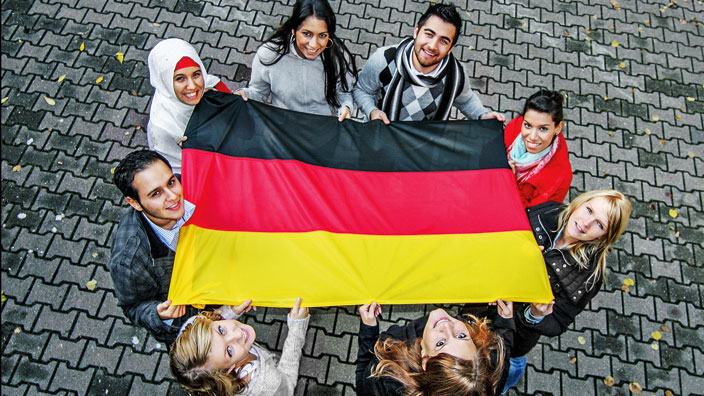Germany passed truly revolutionary amendments to its immigration law of 2020. The government took this step, given the acute shortage of human resources in the labor market. At present, the proportion of migrant workers in Germany is only 4%. And the reason for this is primarily bureaucratic. The new rules offer more opportunities for nationals from countries outside the European Union, who want to work in Germany. This does not only apply to highly qualified specialists and staff specifically invited to work in the country. Even tourists can apply for jobs and stay in Germany.
Experts from the German Academy of Technical Sciences (Acatech) and the Leibniz Institute for Economic Research conclude in a recent study, that Germany’s domestic potential has been nearly exhausted. In recent decades, the Germans have tried to fill the domestic labour market by bringing back retirees into the workforce and attracting previously unemployed women. However, the country is failing – it urgently needs to import labour from abroad.
So, what German lawmakers are proposing. The most unexpected and controversial innovation is the so-called ‘change of line’. This means, that refugees, who have applied to the German authorities for protection, but have not yet received a response, can change their status from asylum seeker to job-seeking migrant worker. Two conditions are necessary for this – such foreigners must meet the criteria for potential labour immigrants in Germany. In addition, this opportunity is only available to refugees, who have applied to the German authorities before March 29th, 2023. In this way, the German authorities are trying to ensure, that they do not encourage illegal migration to Germany. The government says this is a way for German companies, that are short of workers to find suitable workers among the migrants. At least those, who are already partly integrated and speak at least a basic level of German.
This innovation has already drawn criticism from the country’s conservative opposition. Politicians believe, that the government is “changing rows” by mixing up the two migration flows – refugees and migrant workers – and sending the completely wrong message. “The deadline will not deter anyone from also going to Germany in the hope of staying,” said Andrea Lindholz, deputy chairman of the CDU/CSU faction. Other opponents blame the government for simply failing in its migration policy and trying to turn unwanted migrants into the workforce the country needs.
A novelty for Germany is that foreign tourists will be able to stay in the country. People, who come to Germany on a tourist visa and find a job here in the meantime, will be able to find work without unnecessary formalities. This, however, requires appropriate qualifications. The conditions for this are also lowered considerably. For example, qualifications obtained in the country of origin do not have to go through a lengthy recognition process in Germany any more. The main thing is to have at least two years of experience in the profession. By the way, the profession itself is not that important – it is the qualification that counts.
In addition to the existing Blue Card, Germany is also introducing another document for foreigners – the “Chance Card”. Foreign nationals, who have not yet received a job offer from a German company but are considered promising may apply for it. Their prospects are determined on the basis of a points system. They take into account a person’s age, specialisation and work experience, the potential of family members, knowledge of the German or English language, and ties to Germany. A person must score 6 out of a possible 12 points to receive an “opportunity card”. This will enable you to enter Germany in order to look for a qualified job for a year, during which you may work as a casual labourer for 20 hours a week. The card can be renewed for two years.
According to the German government itself, the number of job vacancies in Germany reached 1.98 million at the end of last year. There is a particularly large shortage of personnel in the health and nursing care sector, kindergartens, the service and craft trades, transport and construction work.
The German government predicts, that the next liberalization of the immigration laws will increase the absolute number of such “guest workers” by 60 thousand people a year. And Germany needs an additional 400,000 every year.


